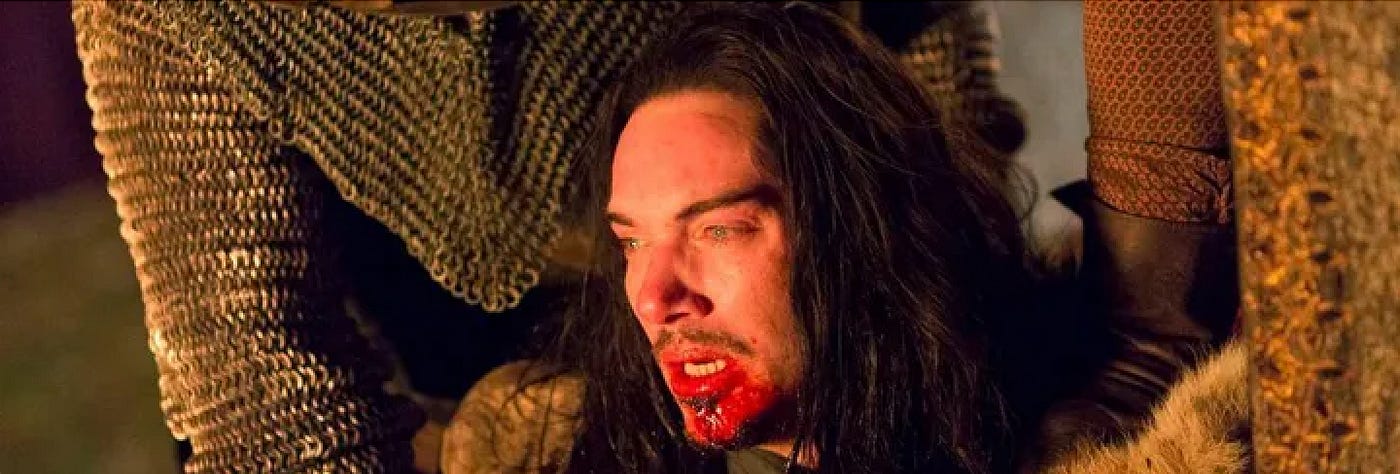More ‘The Horror of “DRACULA”’: Lessons from the Unbelievable True Story of the 2013 TV Series
TV showrunners, literary reps, and my studio executive weigh in about my experience creating “DRACULA”, what I could’ve done differently, and what other screenwriters can learn from my story
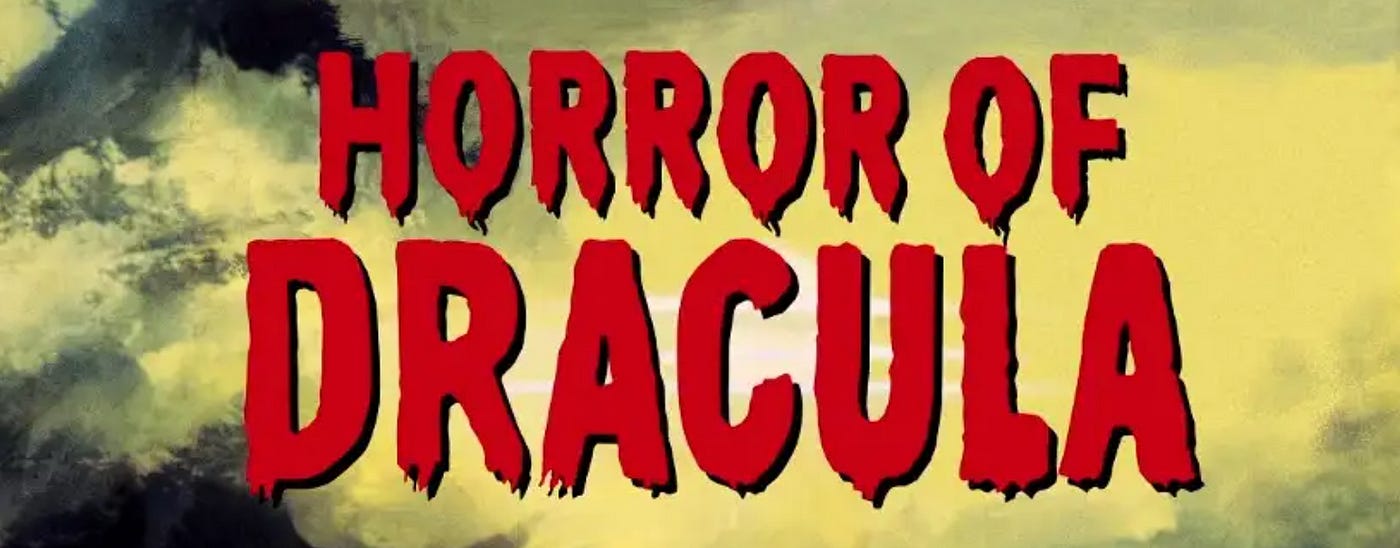
On February 9th, 2011, I took a general meeting with two producers and their executives to discuss a potential collaboration. Seven-and-a-half months later, we sold my first TV pilot to NBC inspired by Bram Stoker’s iconic horror novel DRACULA. What followed was a screenwriter’s horror story, by most accounts. This year, I finally revisited what happened to me in a Substack story called “The Horror of ‘Dracula’: The Unbelievable True Story of the 2013 TV Series” about the conception and sale, outlining, writing, and straight-to-series green light of a television series called “DRACULA”. The monster in this story was not the titular bloodsucker, but a soul-sucking one — a producer I only identified as MR. SMILEY. Today, I want to return to the events I described, reflect on them through the words of other screenwriters, and call upon fellow creators/showrunners, literary representatives, and TV executives to weigh in about what, if anything, I could’ve done differently to produce a different, less nightmarish outcome.
Oh, and be sure to read “The Horror of ‘DRACULA’” before you continue (if you haven’t already)…
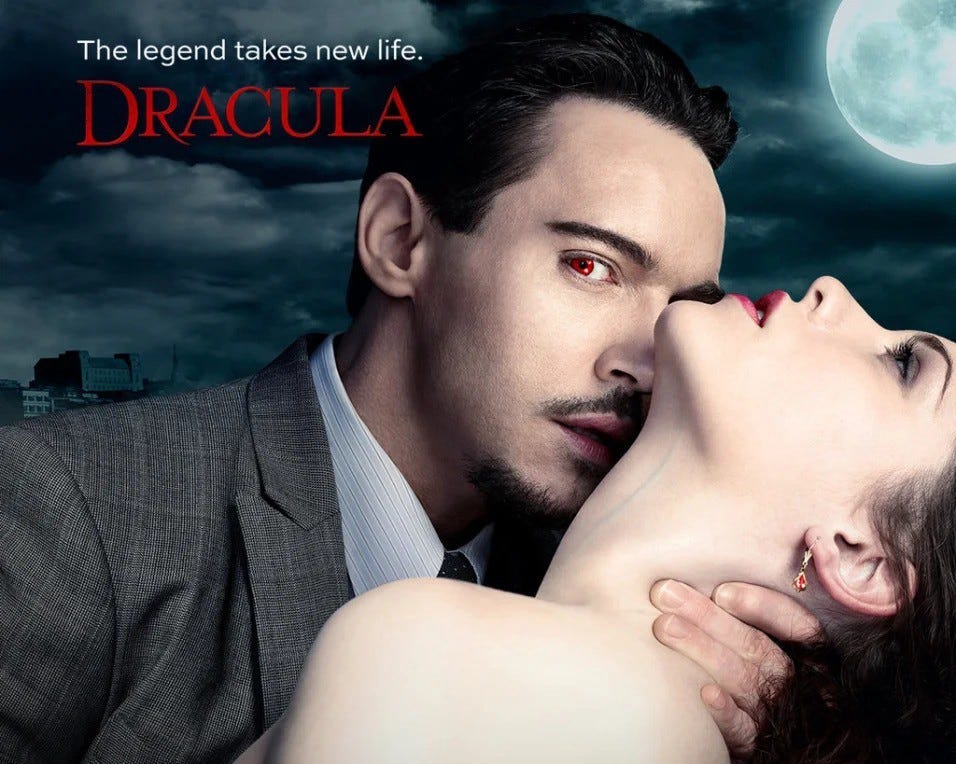
Let’s begin with the response to “The Horror of ‘DRACULA’”. It elicited countless texts, emails, and private messages — more often than not from screenwriters who had experienced similar abuses and wanted me to know that reading the article had made them feel seen.
One wrote:
It’s so rare that I get to hear in-depth accounts of other writer’s experiences. This is such a solo journey most of the time.
Many felt unable to share their experiences elsewhere like this screenwriter:
Thank you for baring your soul like this. Few screenwriters do. It’s an unspoken rule that we’re just supposed to silently absorb toxicity and never speak of it publicly.
And here’s one from a screenwriter who, previously, worked for one of my representatives at the same time “DRACULA” was slowly killing me:
I remember some of that as it was happening in real-time from when I was on [your Rep’s] desk. What an absolute nightmare. I was actually rewritten by a “producer” last year on a project that I thought was going to completely break me. Found out later that he had gone around all the other producers who had no idea what he’d done… Truly had never felt smaller in my life — and I instantly recalled your “Dracula” experience. I shared your posts with a few writer friends who were equally appalled, but also felt seen from their own rough experiences in this silly business.
Additionally, I received numerous emails and messages from people who took stabs at guessing who Mr. Smiley was. I have refused to confirm his identity, because this isn’t that kind of story, but I will observe that the following message was, let’s just say, common:
[I’m] assuming one of the pseudonyms is [X] because I developed with him once and oh my god.
If you think these emails and messages I describe are exclusively from junior writers, know many came from showrunners who have produced countless hours of acclaimed television.
Because of their feedback, I realized how alone many screenwriters feel in this business, even in writers rooms or when otherwise surrounded by peers. Their negative experiences are consequently internalized, even in success — probably because too often we’re told that discussing them publicly could earn us a negative reputation.
As these responses to the article multiplied in my various inboxes like Mogwai playing in a water fountain, I began to ask myself what I could offer readers that might help them in some way. My hope had been the article itself would provide danger signs other aspiring and emerging screenwriters would know to look for, to avoid what happened to me. But another question lingered:
Was there something I could’ve done differently during my “DRACULA” to possibly produce a different, less nightmarish outcome for myself and the series?
It’s a question I used to ask myself all the time, but I probably didn’t push hard enough for ann answer out of fear that I had, in fact, fucked up in some spectacularly naïve or even self-destructive way that doomed me and my TV series. It was time to find out…
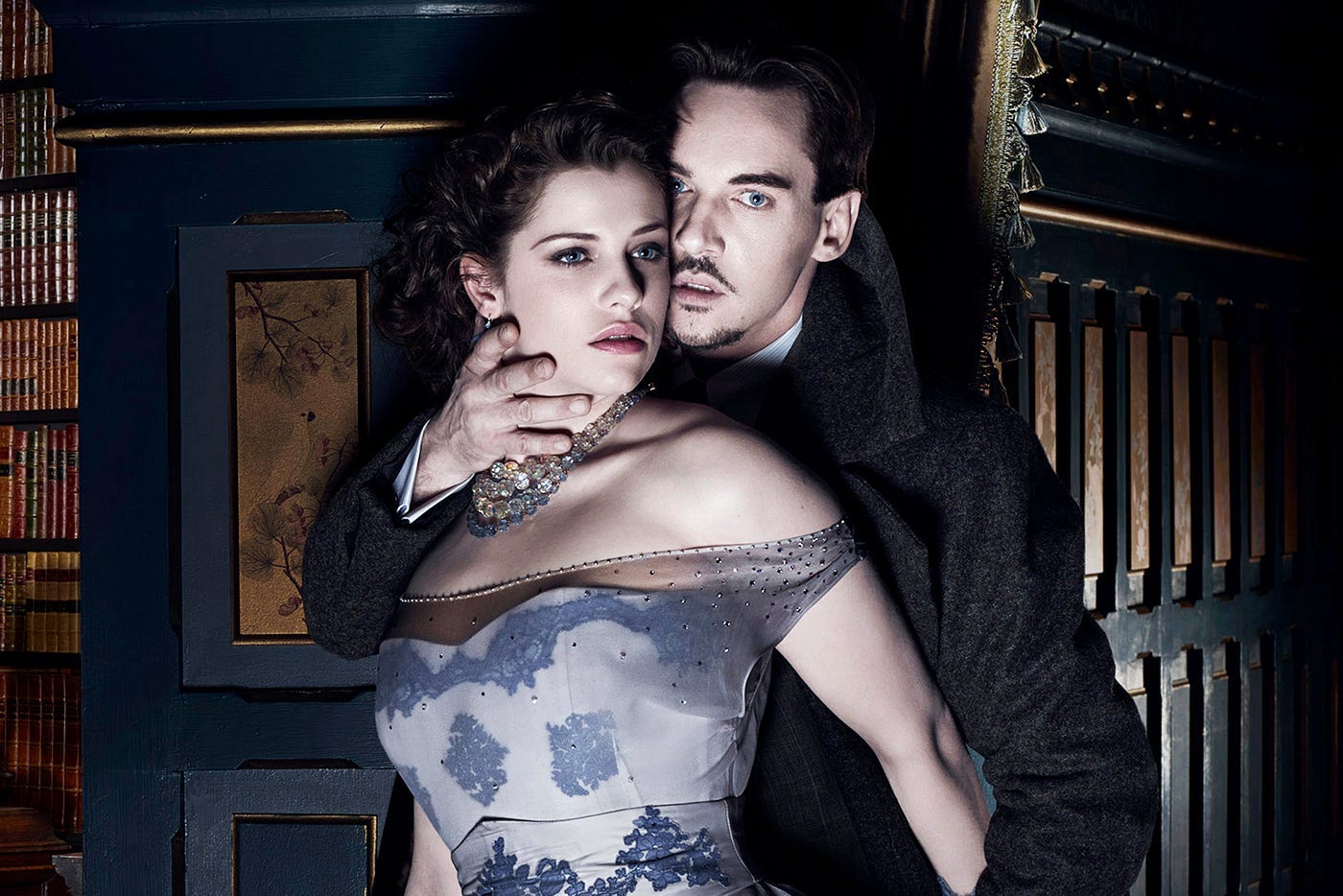
Here is what I learned when I asked several creators/showrunners and one of my former representatives to weigh in about what happened and what, if anything, I could’ve done differently to produce a different result. Maybe their reactions will help some of you if you ever find yourself in a similar situation to mine.
I’m also going to share some thoughts from one of my NBC executives on “DRACULA” — THE FIXER himself, as I identified him in “The Horror of ‘DRACULA’”. He read my accounting of what happened, and wanted to offer his own thoughts about the process and what other screenwriters might learn from my experience.
Dawn Prestwich and Nicole Yorkin
Creators and/or showrunners of numerous series including “Z: THE BEGINNING OF EVERYTHING” and “HIT & RUN”, said:
“What you went through in development and on your show was unfortunately more common than not, Cole. Especially for screenwriters or lower-level TV writers who are not show running their own shows. There is often a non-writing producer in the mix who is very sure he/she/they knows the way something should be written, and tries to manipulate, cajole, and browbeat the writer into doing it his way.
“Here is something important for screenwriters to always remember: you don’t work for the producer. You work for the buyer.
“Unless the producer is paying you, they’re merely a partner in the project, not the creator or the showrunner. They can share their opinion, but in the end, what matters is what the buyer thinks. Follow the money. If ‘the money’ wants it to be stupid and bad, and they’re willing to give you a hefty sum, then you give them what they’re paying for. Or you walk away. But never make something shitty for a producer. Remember, you are the writer. You are the goose that lays the golden egg — until the actor/star goose comes along, of course, then all bets are off.
“In your situation, Cole, it is likely that nothing could have saved you from the toxicity of Mr. Smiley. Even if other writers had warned you away from him, of course you were going to take advantage of an opportunity when you needed one in your relatively young writing career. You survived it fairly well, honestly. You did good work, you tried to navigate the egos to the best of your ability, and you eventually went around your troublesome partners to NBC to get clarity on what they wanted, since they were paying you! You did it all right. It was just really hard, and painful. That’s TV sometimes. In the end, it makes you smarter, and tougher, and more resilient. And you learn to smell the Mr. Smileys from a mile away, and avoid them assiduously.”
Steven S. DeKnight
Creator and/or showrunner of numerous series including “SPARTACUS” and “DAREDEVIL” (2015), said:
“After absorbing your harrowing account of what happened to you on ‘DRACULA’, I can’t honestly fault you for any of his actions or identify anything I personally would have done differently. You apparently got completely screwed over by an insane producer who fancied themselves a writer. I’ve run into that before, and there’s really only two things you can do in that situation: quit or go limp and let the current carry you out to sea. I never advise anyone to quit, so option two is really the only viable one, which you maneuvered brilliantly. You were in a no-win situation — a place we writers often find ourselves in, regardless of level — but despite the horror of it all, you gritted your teeth and by sheer force of will helped get the series on the air. Much to admire about that!”
Mickey Fischer
Creator and/or showrunner of series including “EXTANT” and “REVERIE”, said:
“It’s hard to play armchair quarterback to your story because the stakes were high, you needed the money, and getting it made would put you on a different level. Any one of us could have ended up in a quagmire with Mr. Smiley.
“There are two creative red flags. The first one is, ‘I’ll know it when I see it.’ You start to feel it when every round of notes takes you in a whole new direction. GONE GIRL comes out that weekend and on Monday you hear, ‘What if this was more like GONE GIRL?’ Then you repeat that process for whatever ‘zeitgeisty’ thing comes next.
“My second red flag is, ‘They want me to take dictation for the idea in their head.’ This seems a bit more like your scenario with Mr. Smiley.
“My favorite working relationships are with people who are genuinely trying to help me realize the best version of my ideas. They push back when something doesn’t ring true, or make sense, when I’m tonally out of bounds, or just when they know something can and should go deeper. They’re not trying to make it something it’s not, or have me wandering around in the wilderness going, ‘What about this?’ Time spent chasing someone else’s vision, or a vision they might finally approve, is time not spent on opportunities with healthy collaborative relationships.”
One of My Reps at the Time of “DRACULA”
A former rep of mine who was there for all of “DRACULA” said:
“When you’re first starting out and an opportunity presents itself to you that feels too good to be true, you have to assume it’s going to come with a ton of strings attached. And then you throw a bunch of toxic personalities into the mix, and it will likely turn itself into a runaway train. It’s really tough to game out anything in this business, so you can only try and do your best. Nobody sets out to make a bad show or movie. Extenuating circumstances come into play and it’s unfortunate, but that’s just the nature of the business. I do believe everything you do in this business is a learning opportunity and hopefully you become shrewder and more attuned to when things might be going south and can pull the ripcord earlier on.
“That being said, I wouldn’t have played things differently here. It was an unfortunate set of circumstances that hopefully led to real growth in your ability to deal with adverse situations and led you to where you are today, living happily with your family, working on the types of projects that really matter to you.”
The Fixer
I chose to use pseudonyms for everyone involved in “The Horror of ‘DRACULA’” with the exception of those at the top of NBC and Sky. Amongst these pseudonyms was an NBC exec I named THE FIXER. The Fixer was, along with my reps and the producer Mr. English (as I named him), were the saving graces of the “DRACULA” development experience for me. In the Fixer’s case, he was constantly coming to my rescue, doing everything he could, within the political framework, to mitigate the chaos that surrounded our project. When I wrote “The Horror of ‘DRACULA’”, I found myself lamenting the loss of our relationship, and took, what I thought, was the outlandish step of reaching out to him after so long. He was not only immediately receptive, he also asked to read the essay series he was featured so prominently in. He not only responded positively, but offered to share his own thoughts on what happened and what other screenwriters might learn from the experience. He shall remain nameless here because, as he observed, “Why would anyone ever give up the name The Fixer?”
He said:
“I am an unabashed horror fan, and Cole’s original pitch really struck a nerve with me because it captured the essence of Dracula as both monster and benefactor to the human race, and in the myriad of vampire incarnations that had existed up until that point, I had never seen a take like that before.
“I can’t add much to the experience in terms of it being a cautionary tale for writers, and frankly, Cole has done such an incredible job of using his honesty and wit to do just that. If there was any insight or piece of advice I could offer, it would be to stay true to your vision. I personally think it would be better to swing with everything you’ve got and miss, than co-opt your originality and creativity in a desperation to get something made. Having said that, I do not mean that one should completely shun compromise. Good, creative thoughts, dramaturgy, can come from unexpected sources. It pays to listen, discern, really check yourself to see if that note is worth fighting to the death over.
“There is no vacuum in this business. You will always have partners. It pays to pick them wisely and then trust them as such. Empathy is a very valuable tool. Put yourself in that person’s shoes, and determine why they feel what they feel. They may not be presenting the note well, but that doesn’t mean there isn’t one to suss out. And if there is a note that fundamentally undermines what you want to do, then fight like hell.
“The last thing I would offer up is to development partners of all kinds, be they producers, development executives, or network chiefs. Buy what’s being pitched. There is a big difference between trying to guide a thoroughbred to victory, and trying run the race yourself. Trust the creatives that inspired you with an idea that has brought you to the point of spending your development and production dollars. If there’s a circumstance where you love an idea and want it, but with a certain shift in the storytelling, don’t hide the ball. Have the conversation before you commit to make sure everyone is on the same team. Writers, producers, directors, development execs, current execs, studio and network chiefs, if there is one thing I can leave you with to close out this ramble, it would be that: don’t hide the ball.”
(I think the Fixer just called me a thoroughbred, or at least that’s how I’m going to choose to read his thoughts here.)
So, what should you take away from these conversations?
I think that’s up to you, of course, but I would say there are three big points not to ignore. In all cases, I accidentally got these right.
Remember, you don’t work for your producers unless its their money being deposited into your bank account. You work for “the Money”, as Prestwich and York explained, and they tell you what to do at the end of the day.
Don’t quit (as I attempted to do several times and which the Fixer, thankfully, prevented me from doing). Navigate the situation to the best of your ability, using your representatives as your defense as much as possible. When this doesn’t work, it’s time to turn to said Money for help.
When you agree to collaborate with producers or Money — studios, networks, financiers — it is imperative that all parties agree early on about what the vision for the series is. (In my case, the studio/network and I agreed what the series was, based on a six-page document I presented all parties, but the producers had different ideas that, even between them, didn’t match up.)
There is a fourth big point, but in this case I got it utterly wrong.
Be incredibly considered in your choice of collaborators. Early in my career, I trusted I was only being introduced to people with excellent reputations, but in this case, my reps — early in their careers, too — didn’t know any better because Mr. Smiley’s CV, which went back deep into the nineties, spoke louder than a reputation largely acquired before they even entered the business themselves. If you detect red flags, as I did almost immediately, begin asking questions everywhere until you’re confident you didn’t just climb into an escape boat with a cannibal.
But all this said, these observations are for you. I started down this road, I now realize, to answer a question I have been too afraid to answer for years:
Was there anything I could’ve done differently on “DRACULA” to produce a different result?
In other words:
Was it my fault?
Mr. Smiley would certainly tell you so — he seemed to enjoy trying to convince me it was — but after conversing with numerous showrunners and development executives, including a few who wouldn’t go on the record even anonymously, I am now confident the answer to this question is unequivocally no.
When Steven DeKnight first emailed me his response, my eyes actually rimmed with tears. Eleven years after my first television series was turned into an emotional rollercoaster through the Seven Rings of Hell, someone who had done this a lot told me I wasn’t to blame.
Others quickly chimed in, saying the same.
As for my conversation with the Fixer, it was rather sprawling, and I am obliged to only comment on the length quote he offered me. But I choose to read that quote — staying true to your vision, fighting like hell, and producers not hiding the ball about what they want from a screenwriter’s project — as confirmation that my vision, that what I fought for, was also what he was trying to protect. That’s my take on it, at least, but I think it’s a reasonable one.
Eleven years after I first pitched my take on the character of Dracula to Mr. Smiley, Mr. English, and their executives, a decade after I tried to repeatedly quit my own television show to protect my sanity, I finally feel confident that I did almost everything right. Mistakes were certainly made, but nothing that should’ve compromised the project. Learning experiences on the road to becoming a successful TV showrunner myself, basically.
Long story short: It wasn’t my fault.
I’ll eventually return to my experiences on “DRACULA”, to discuss aspects of what happened after the series was greenlit as a way to help aspiring and emerging screenwriters navigate similar situations — and, apparently, to provide catharsis to working screenwriters who have known similar anguish — but I’m going to take a break for now. I’ll leave you with a photograph of the “DRACULA” writers room, which appropriately — at least in my opinion — does not include the showrunner I was forced to work with. With very few exceptions, I’ve stayed in touch with everyone pictured here. In several cases, they’ve become some of my closest friends and I can’t imagine my world without them in it. They are the single best thing I got out of “DRACULA”.
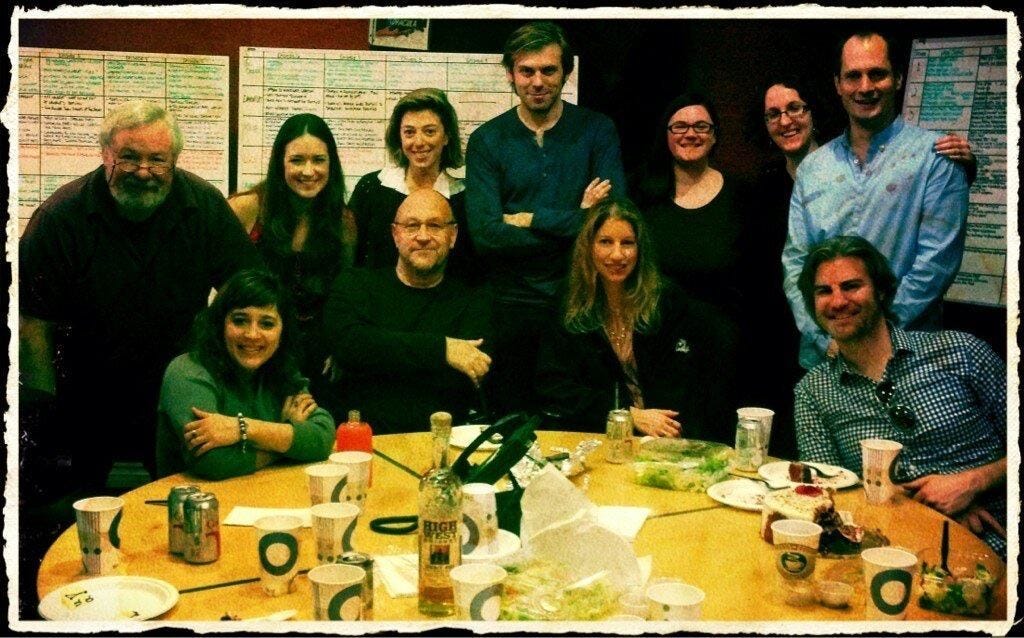
If this article added anything to your life, please consider buying me a coffee so I can keep this newsletter free for everyone.
PSALMS FOR THE END OF THE WORLD is out now from Headline Books, Hachette Australia, and more. You can order it here no matter where you are in the world:



